Geneva hotel sector feels devastating impact of Covid-19
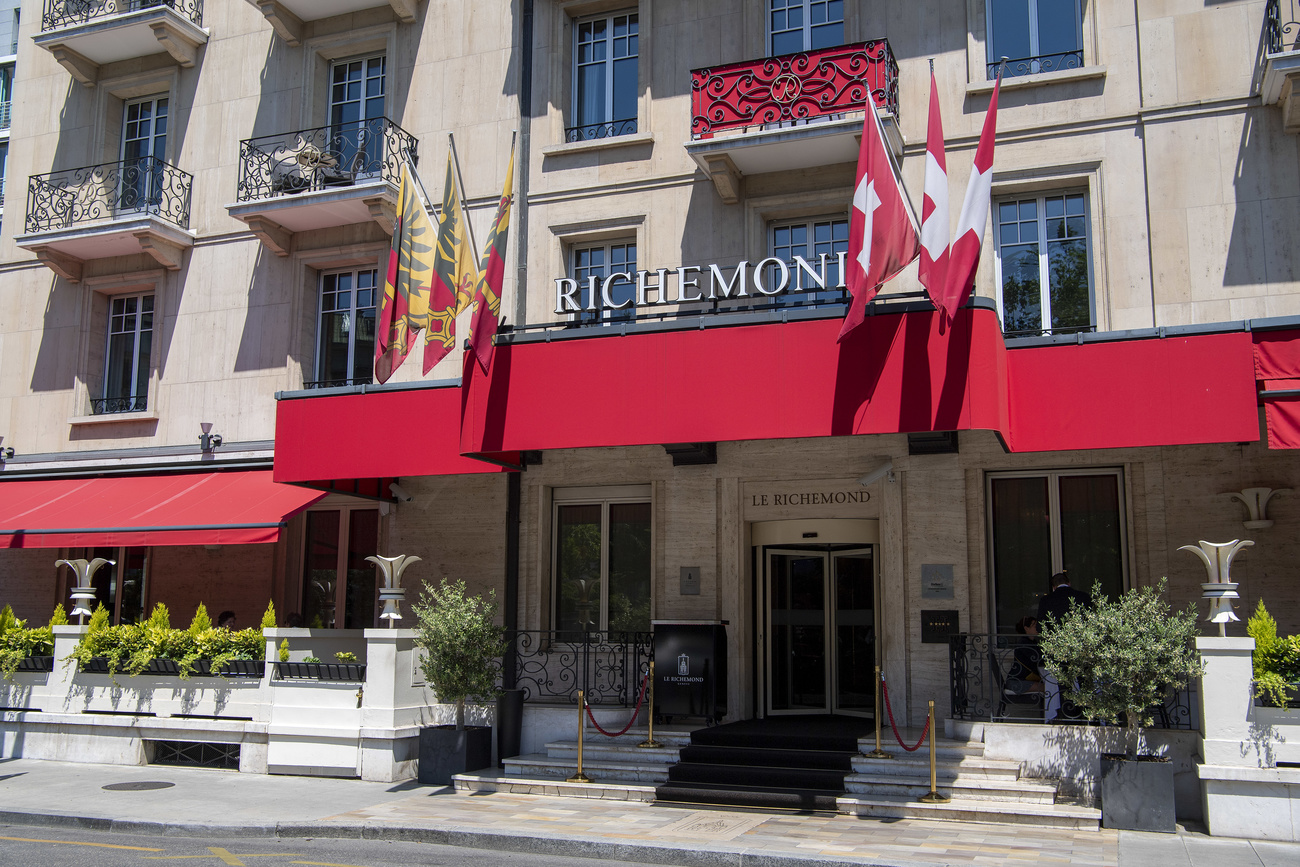
The coronavirus pandemic has wreaked havoc in Geneva’s hotel sector, which relies heavily on international visitors and conferences.
“We don’t deny the impact of Covid-19. We understand that it can put a hotel in the red,” declared Sylvan*, an employee of the five-star Hotel Richemond. “But when the hotel belongs to a multi-millionaire, we cannot understand that we can be made redundant so dramatically without a social plan. We can’t accept that.”
He is one of the 141 staff at risk of losing their jobs at the luxury family-run hotel on the shores of Lake Geneva.
Most have been on partial unemployment since March. However, at the end of May they learned that the management was considering temporarily closing the hotel to limit the financial damage caused by the pandemic. In April and May its occupancy rates stood at 10%. Fighting to save their jobs, or to at least get a decent redundancy package, staff have contacted a local union and launched a conciliation process.
“The case of Richemond is emblematic and will set the tone for how Geneva wants to address the situation of these people,” said Marlene Carvalhosa Barbosa, union secretary at the Interprofessional Workers’ Union. (SIT).
“The message I keep hearing, whatever the hotel, is ‘We’re trying to keep your jobs but you must make sacrifices,’” said Barbosa.
Her organisation has been inundated with calls during the Covid crisis. During lockdown, hotel staff have been forced to use up holiday allowances and scrap overtime hours. Some were even asked to work when they were declared partially unemployed, she said.
An estimated 13,000 out of the 15,000 hotel and restaurant employees in Geneva are said to have been furloughed and put on partial unemployment during the lockdown, receiving 80% of their wages. But surviving on the notoriously low salaries in an expensive city like Geneva is tough. A monthly gross salary for a hotel employee rarely exceeds CHF4,500 ($4,740); most earn around CHF3,400.
Business tourism
Nationwide, the hotel industry is predicted to lose CHF1.8 billion in turnover this year due to the pandemic, with overnight stays expected to fall by one third in 2020.
Cities have been hardest hit and Geneva is one of the worst-affected. In recent years it recorded the second highest number of annual overnight hotel stays among Swiss cities. But during the crisis occupancy rates were close to zero; establishments shut and most reservations were cancelled through to June.
“It’s a disaster. Geneva is almost exclusively built on business tourism – big congresses, meetings and international organisations and banks – representing around 75% of its overnight stays,” said Thierry Lavalley, general manager of the five-star Fairmont Grand Hotel Geneva.External link
“Today, business is completely paralysed. All the big conferences at the Palexpo congress centre have been cancelled through December 31. Many big international firms have insisted that none of their staff travel until the end of the year. 2020 is over.”
Around 300 international meetings and events have been cancelled in Geneva due to Covid, resulting in the loss of millions of francs.
Currently, 60 out of 125 hotels in Geneva remain closed. During the peak of the lockdown, 84% of the city’s restaurants and hotels were shut. A recent study of the impact of the Covid crisis on the Swiss tourism industry revealed that each Geneva hotel lost on average CHF1.7 million in income in March and April, and around CHF1 million in May and June – the highest for all Swiss regions.
Beyond the loss in turnover, the study warned that the risk of bankruptcies was highest among Geneva-based hotels and restaurants (35% potentially affected).
Several hotels have since opened. But according to Lavalley, who is also president of the Geneva Hotel Association, the vast majority have only a handful of clients and occupancy rates for this summer vary between 5-8%. “Many hotels today are operating at a loss,” he declared.
Good news on the horizon?
On June 15, Switzerland re-opened its borders with many other European states after improvements to the coronavirus situation. For the moment, Switzerland says it is not yet possible to allow travel from outside the European Schengen zone. For example, a visitor from the US or China cannot enter Switzerland. A gradual reopening to other countries may start from July.
At Geneva Airport, which has been at a standstill for months, 2,500 passengers flew in on June 15. But at this time of year the daily number of passengers normally fluctuates between 40,000 and 60,000. The airport predicts 70-80% fewer passengers this year compared with 2019.
“Things will probably pick up timidly in July and August. The big question is September-November,” said Adrien Genier, chief executive officer of Geneva Tourism.
He said Switzerland’s recent ranking as the “safest country for Covid-19” was helpful as a marketing tool to attract visitors. But he remains realistic.
“Over 80% of people coming to Geneva are foreign visitors and a large number are from the US, Britain and Gulf states, and they are well closed right now,” said Genier.
What about Swiss tourists?
Swiss tourism officials and government ministers are hoping residents will take their holidays in Switzerland this year rather than abroad. But will they choose Geneva over the mountains of Graubünden or Valais?
To try to rescue the situation and boost visitor numbers, the Geneva government wants to propose cut-price hotel rooms (1/3 original price) for Swiss residents to stay in the region this summer. The authorities have set aside a budget of CHF4.5million to finance the idea, which must still be validated by parliament.
Lavalley welcomes this measure but he remains pessimistic about the future.
“The perspectives of economic recovery are very vague. In general the hotel industry is the first to go into crisis but the last to exit. The crisis is not just three months of coronavirus. Its collateral effects are enormous. It will last several months, even years,” he said.
And if the Swiss authorities don’t extend partial unemployment measures beyond September for at least 12 months, there will be an economic disaster with everyone on partial unemployment losing their jobs, he added.
*name changed to protect anonymity.

In compliance with the JTI standards
More: SWI swissinfo.ch certified by the Journalism Trust Initiative

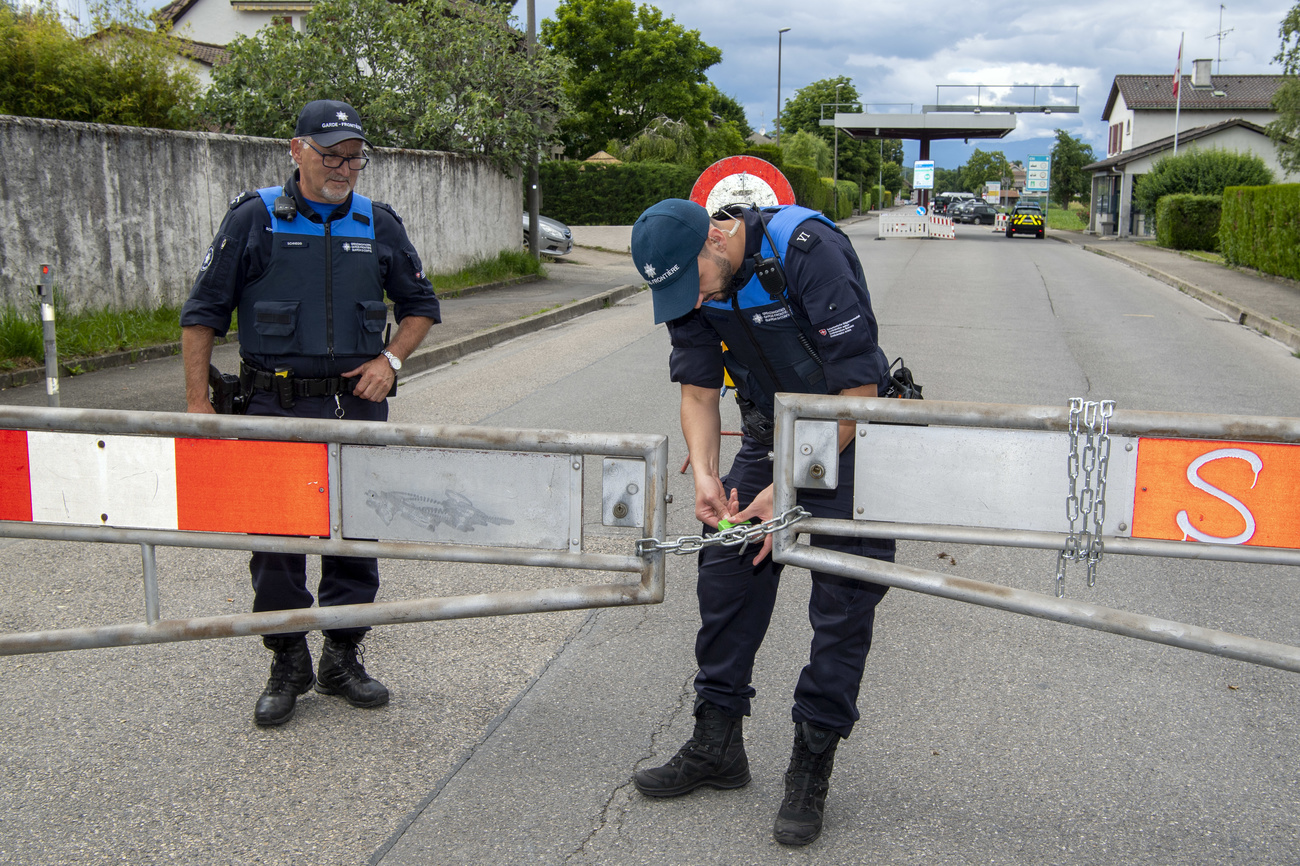
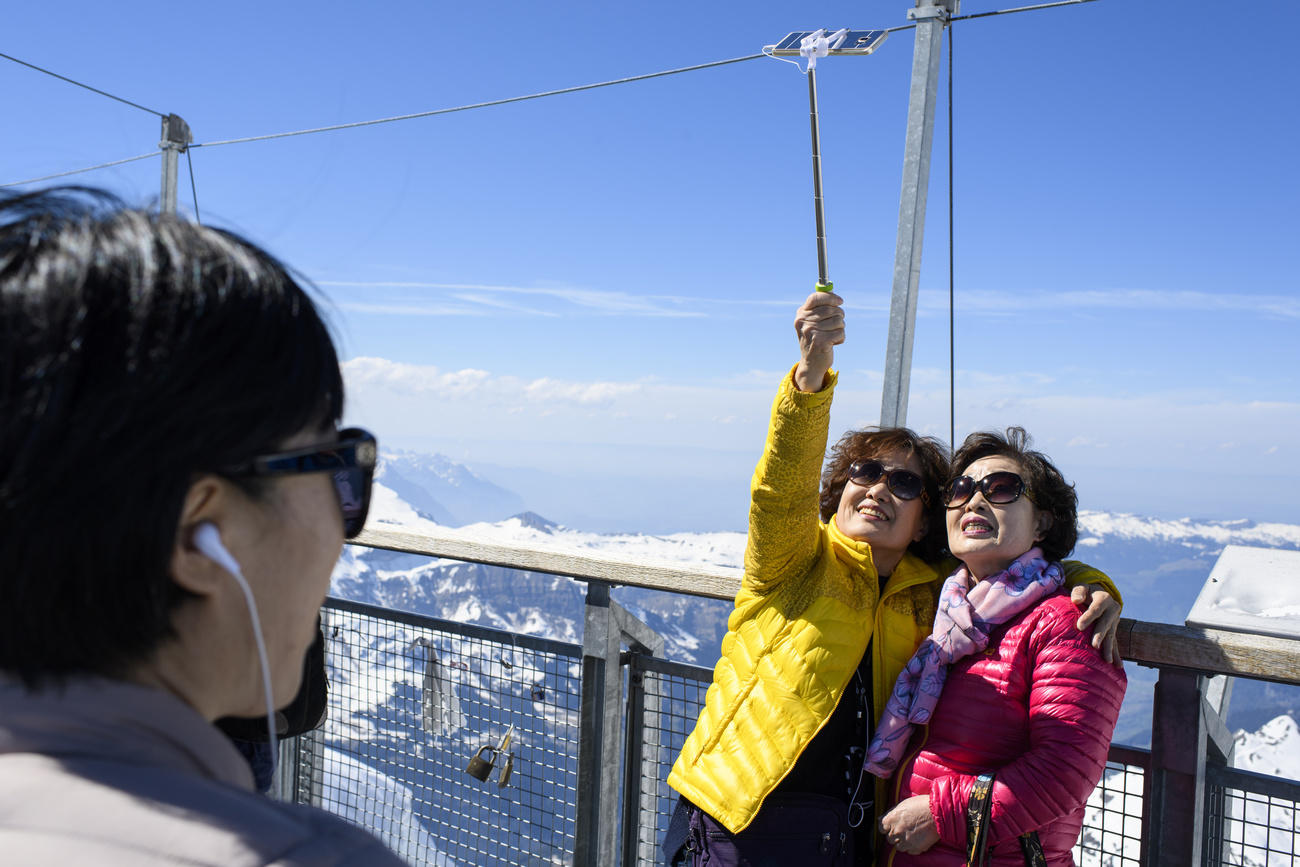
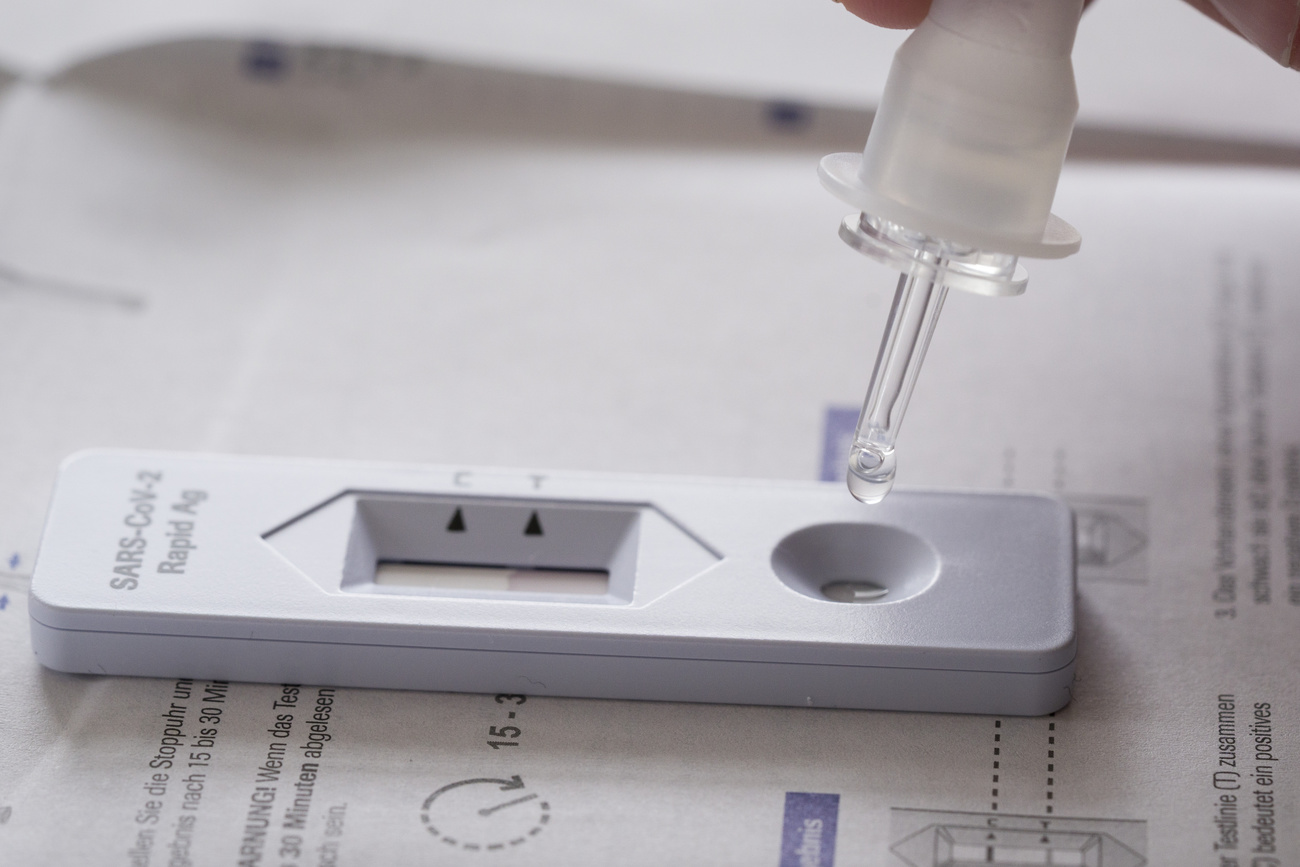
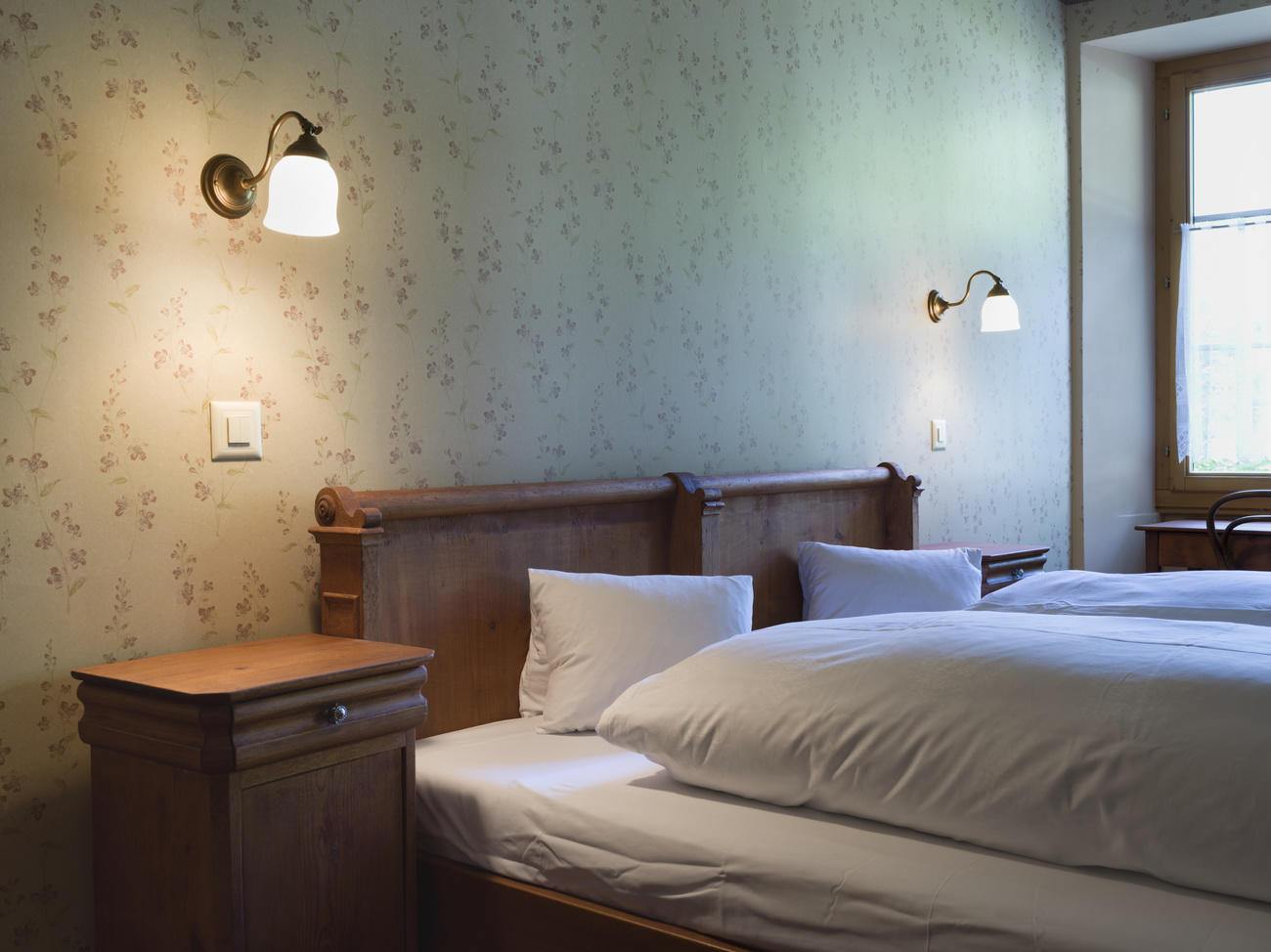
You can find an overview of ongoing debates with our journalists here. Please join us!
If you want to start a conversation about a topic raised in this article or want to report factual errors, email us at english@swissinfo.ch.